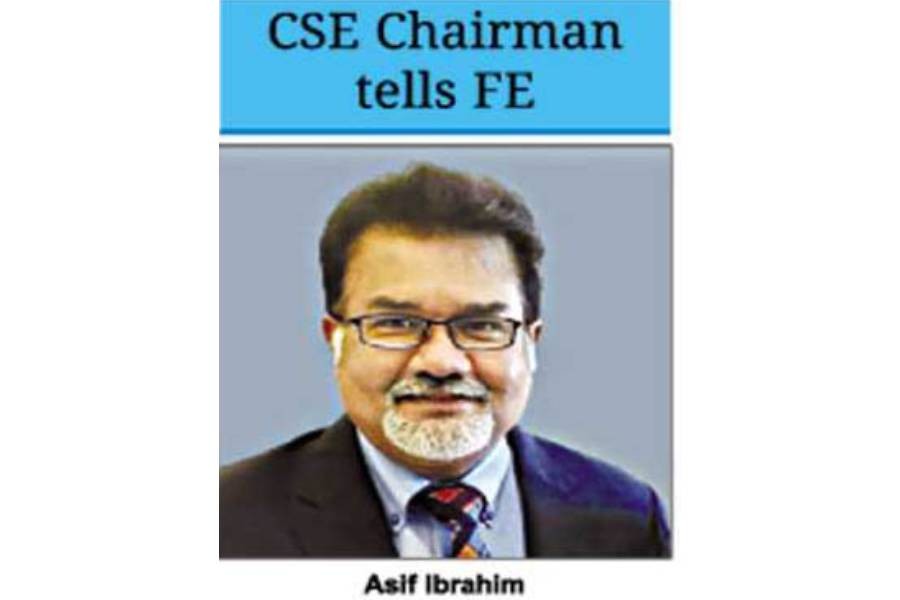
Published :
Updated :

Chittagong Stock Exchange (CSE) has started its job to establish a well-structured commodity marketplace within five years to ensure fair prices of goods for consumers, producers and peasants.
Chairman of the port city bourse Asif Ibrahim said this in an interview with the FE.
The pioneering role played in automation of the country's securities market and establishment of its depository authority has inspired the port city bourse to embrace the challenge of establishing the maiden commodity exchange (CX).
"Based on its previous experience, the CSE has embraced the challenge of establishing the country's maiden commodity exchange which will be a good business model for all of us given the country's commodity volumes," Mr Ibrahim said.
He said a structured and regulated commodity marketplace was required in this country in the context of macroeconomic figures such as purchasing power priority and the size of GDP (Gross Domestic Product).
"A commodity exchange should have been established long ago," said CSE Chairman Mr Ibrahim.
A commodity exchange is a legal entity that determines and enforces rules and procedures for trading standardised commodity contracts and related investment products.
Following an initial consent from the regulator, the CSE has identified different areas and scopes of work on development of bylaws, and rules and regulations.
"The commodity exchange will be a subsidiary of the port city bourse and its existing shareholders will have stakes at the exchange," Mr Ibrahim said.
Asked about initial investment for the commodity exchange, the CSE chairman said more investments would be needed after catering the cost of software and hardware platform and appointment of the development consultant.
He said the initial investment for the consultant and software and hardware platform had stood at US $0.7 million.
Asked about the warehouse facility for the commodity exchange, the CSE chairman said warehouse facilities would be ensured through contracts to be signed with other stakeholders.
"The prominent business houses of Chittagong have expressed interests to come forward with warehouse facilities."
The CSE will ensure a business understanding in using their warehouse facilities.
"A sub-contract model will be developed for warehouse facilities. The CSE will ensure some facilities while the rest of the facilities will be outsourced."
Asked about the risk factors, Mr Ibrahim said they might face a lot of challenges as the country was yet to see any commodity exchange.
"Challenges lie in executing settlements and setting reference prices for commodities. The formation of a business specification model is also a complicated process."
The Central Counterparty Bangladesh Limited (CCBL) will come up with its operation soon and it will ease the settlements in commodity exchange, he said.
"Where there is a start, there is a destination. I think a structured commodity exchange will be visible within five years in Bangladesh."
The nexus of middlemen is a much-talked-about issue in Bangladesh as consumers in many cases are unable to purchase commodities at fair prices because of the nexus of the former. And the producers and peasants are also deprived of the due price of their products.
In this regard, the CSE chairman said the farmer cooperatives at the rural level would be connected with the commodity exchange.
"New cooperatives will also be formed to conduct trading of their commodities. They will feel the comfort to conduct trades in an assured market."
Ultimately, the middlemen will be bound to change their business model taking into account the interests of consumers and peasants, said the CSE chairman.
He said the CSE was getting a huge support from the policy level as the ministries concerned were very much enthusiastic about the establishment of the commodity exchange.
mufazzal.fe@gmail.com


 For all latest news, follow The Financial Express Google News channel.
For all latest news, follow The Financial Express Google News channel.